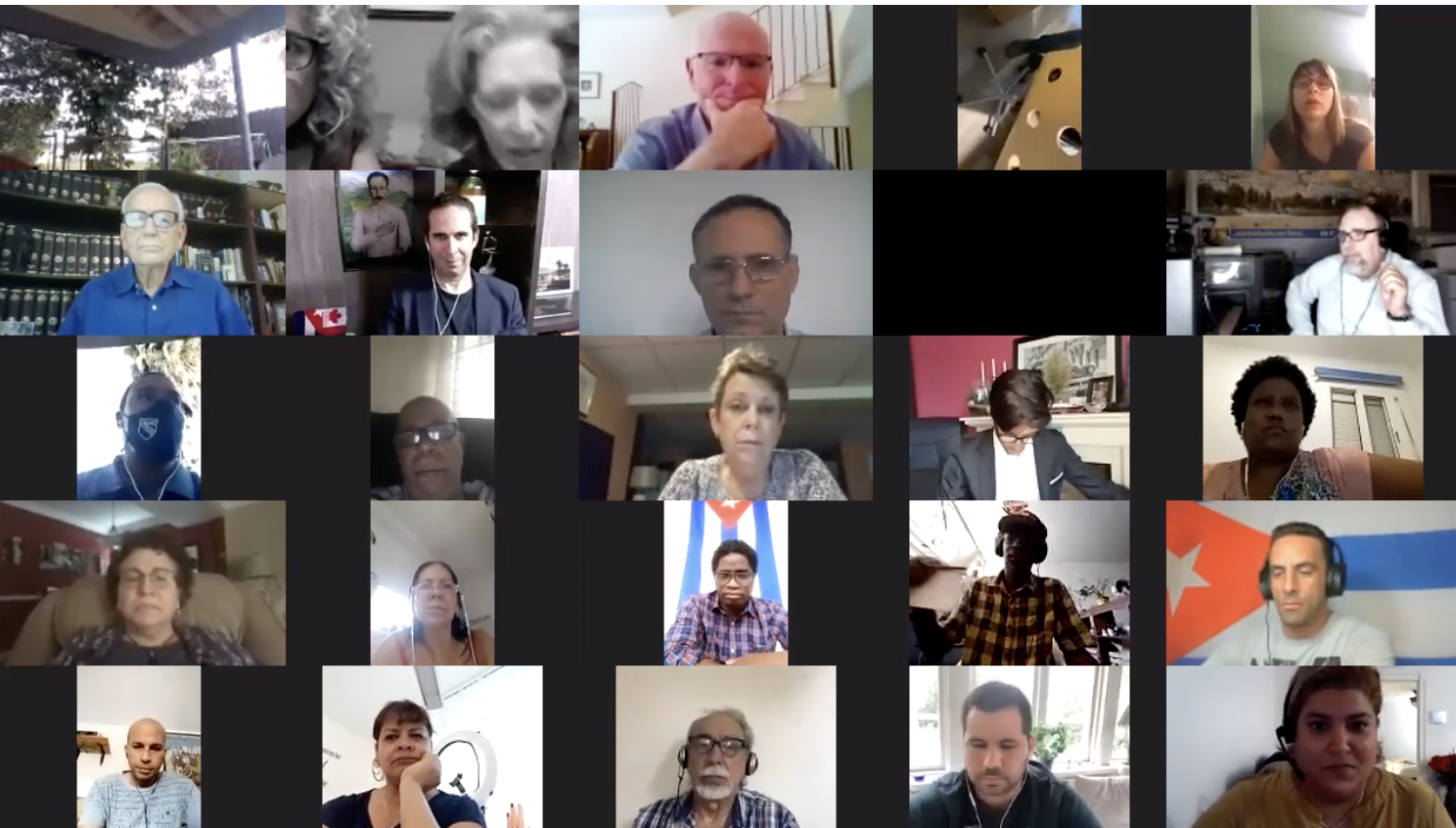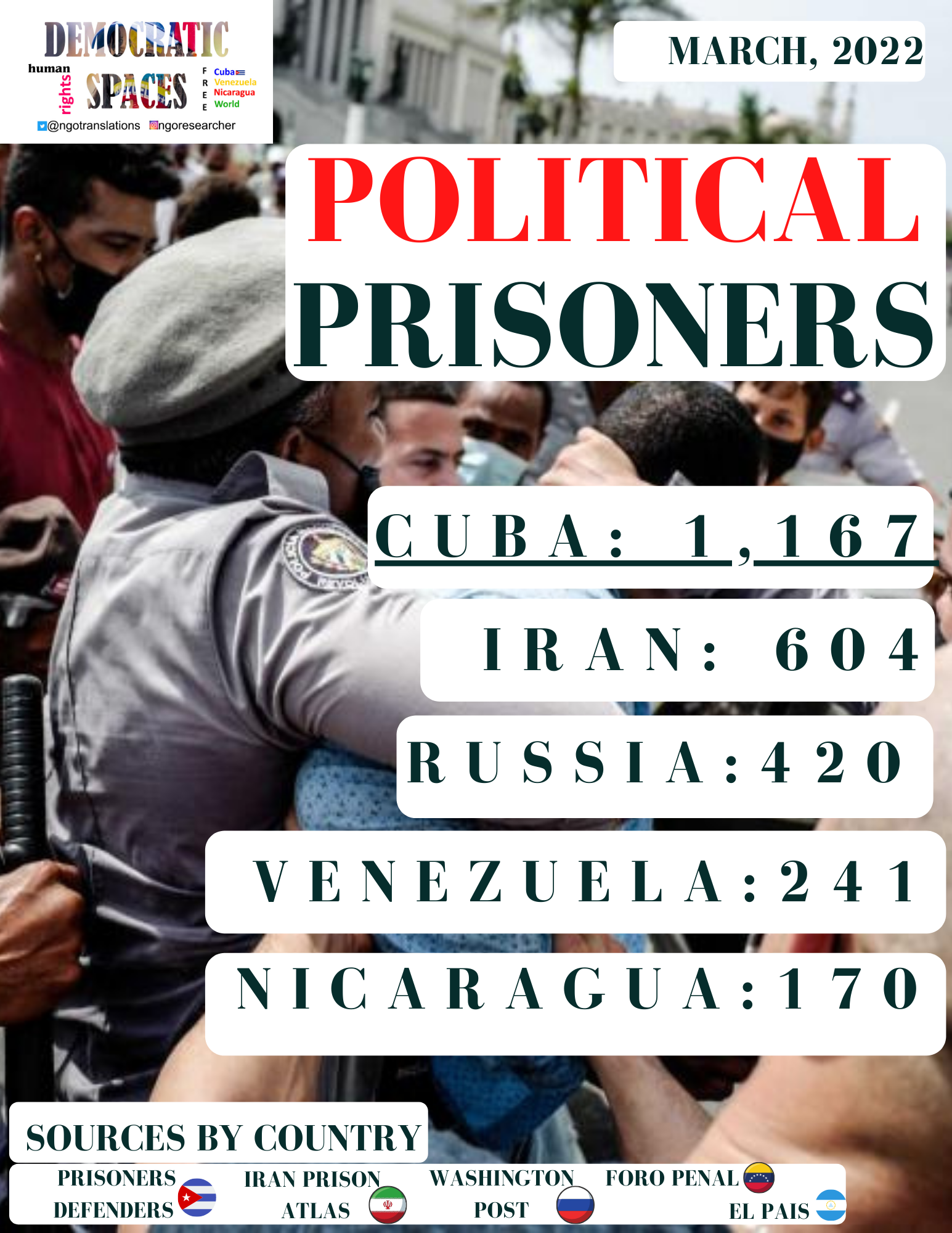Amnesty Law in Cuba: Putting pressure for the Release of All Cuban Political Prisoners
As part of its CUBA 11J initiative, the Council for Democratic Transition in Cuba is working for the release of all political prisoners in Cuba. It is in this context that we have launched a proposal for an AMNESTY LAW AND DECRIMINALIZATION OF DISSENT. The Council is still working on the final draft of the proposed law in consultation with lawyers in Cuba and abroad as well as pro democracy activists. It will be available online soon.
The Council for the Transition to Democracy in Cuba is chaired by José Daniel Ferrer García, who is currently unjustly imprisoned and subjected to torture and cruel, inhuman and degrading treatment in the Mar Verde prison in Santiago de Cuba. José Daniel has been a leader in the peaceful struggle for democracy in Cuba for 30 years. He is founder and National Coordinator of UNPACU, promoter of the citizen initiative Cuba Decide and 3 times political prisoner. Declared Prisoner of Conscience by Amnesty International in 2003 and in 2021.
The Council is made up of 30 organizations within Cuba and around the world and was created a month before the pro-democracy protests of July 11th as a solid institution capable of providing solutions, proposals, initiatives and actions to lead Cuba towards a regime of freedom and the rule of law. We seek a peaceful change from below, from the citizenry towards a regime of freedom and rule of law.
Michael Lima, Dir of Democratic Spaces at the first press conference of the Council for Democratic Transition in Cuba on June 14 2021. All members of the council were there including the president José Daniel Ferrer García as well as members of the press.
Amnesty, in short, is a legal process by which a series of crimes are condoned and pardoned, for legal purposes, NOT MORAL, on the basis of laws which, LIKE THOSE EXISTING IN COUNTRIES UNDER DICTATORSHIP such as those of Cuba, are unjust and arbitrary. Among these alleged crimes are rebellion, sedition, conscientious objection, acts of expression and opinion through any means.
Historically, an amnesty requires the consent of two parties (those who cling themselves on power and those who fight for democracy). It is carried out at times when there is a desire to begin a new stage, the re-founding of a nation, a change towards democracy or a peace process in countries at war. Examples of communist countries that carried out amnesty laws include Poland in 1984 with the release of Solidarity leaders and the former Soviet Union in 1987 with the release of 150 political prisoners out of a total of between 500 and 2,000. On March 29, 2016, the legitimate National Assembly of Venezuela approved an Amnesty and National Reconciliation Law which in its wording referred to the amnesty for acts carried out in the exercise of citizen liberties and for political purposes to activists, lawyers and Human Rights defenders between January 1, 2000 and the entry into force of such law. This law was annulled by the Supreme Court of Justice controlled by the Maduro regime.
I understand, as do many in the Council who participate in this initiative, that in 63 years of Castroism there has never been an Amnesty Law in Cuba. We understand the immovable nature of power and its mission to sow terror because never has the regime faced such an overwhelming, spontaneous protest of national proportions and which was representative of broad sectors of Cuban society as that of 11J. We understand that there is no will for change in Cuba on the part of those who impose themselves in power to carry out an AMNESTY LAW as has been seen in processes similar to the one in Cuba.
THEREFORE this Amnesty Law initiative should be seen fundamentally as a mechanism of CITIZEN PRESSURE. The initiative seeks the signatures of AT LEAST 10 thousand people in Cuba (the number required by the 2019 constitution). Beyond fulfilling a legal requirement that could set an important precedent, THE INITIATIVE AIMS TO PRESSURE WITH THE PROTAGONIC SUPPORT OF THE CUBAN PEOPLE for the dictatorship to release political prisoners and those unjustly imprisoned under the arbitrary law of "PREDELITIVE DANGER" Internationally it has more force to pressure the dictatorship of Cuba to release political prisoners with the backing of an Amnesty Law initiative than without it. It is NOT the same to make a request without the support of thousands of signatures of Cuban citizens and with the reminder to the dictatorship that it is not complying with its own law, as it is without these elements.
Imprisonment for political reasons and due to arbitrary laws is probably the greatest human drama experienced by Cuban families today. Since 1959, it is estimated that at least half a million Cubans have been imprisoned or arbitrarily detained for political reasons. Cuba today has more than 1,167 political prisoners, 33 of whom are minors. Comparatively, Cuba has more political prisoners than Venezuela, Nicaragua, Iran and Russia.
The Council today acts in solidarity with the request of the mothers and relatives of the 11J political prisoners who in December 2021 made a request for an Amnesty Law. It is also acting in consonance with a historical demand of several generations of defenders of democracy and freedoms in Cuba. In the last decades several Cuban pro-democratic opposition groups have also proposed an Amnesty Law for all political prisoners. Similar initiatives were carried out by the peaceful opposition in Cuba, from Oswaldo Paya's Ley de Reencuentro Nacional (National Reunification Law) which had as an essential component an AMNESTY LAW presented to the Cuban Parliament on DECEMBER 19, 2007 and the proposal of the FORUM FOR RIGHTS AND FREEDOMS which sought a similar purpose before the National Assembly on July 7, 2015.
While the ultimate goal to which we Cubans aspire is the establishment of democracy in Cuba and the extirpation of all the repressive institutions and laws of the Cuban dictatorship, as activists we must be sensitive to the suffering of Cuban mothers and families in the face of the unjust and brutal sentencing of their relatives. If there is one thing that unites us as freedom lovers, it is the understanding that there can be no transition to democracy without that first big step that is achieved through citizen pressure and that begins with the release of hundreds of Cubans imprisoned for exercising their right to free expression and peaceful association, subjected as in the cases of José Daniel Ferrer García, President of this council, Félix Navarro, Vice President, Luis Manuel Otero Alcántara and many others to torture, cruel, inhuman and degrading treatment and brutal sentences of up to 30 years of imprisonment. And the tens of thousands of prisoners imprisoned for ¨pre-criminal dangerousness¨ who without having committed any crime are unjustly taken to prison for ¨conduct contrary to the norms of socialist morality. "

